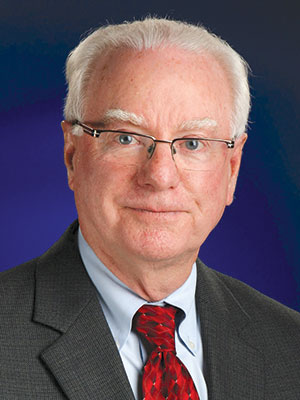
During the planning phase for each ACR/ARP Annual Meeting, clinicians and other stakeholders share their ideas for sessions about rheumatoid arthritis treatments. In an effort to explore as many of those ideas as possible, a panel discussion has been designed around five key questions many clinicians would like to ask of experts in the field.
The session How Do I Manage This Patient?: Difficult-to-Treat RA Cases will take place from 11:00 am – 12:00 pm Tuesday in the Thomas Murphy Ballroom 1-2, Building B in the Georgia World Congress Center.
Co-moderator Gordon Starkebaum, MD, Professor Emeritus in the Department of Medicine at the University of Washington, Seattle, said the session’s goal was to cover useful information and also to engender discussion. The audience will be able to submit questions for the expert panel during the session. Dr. Starkebaum said the planning committee, including fellow co-moderator Daniel Solomon, MD, MPH, Professor of Medicine at Harvard Medical School, Boston, also developed a list of five questions pertaining to topics they want to ensure the panel covers.
ACR Daily News asked Dr. Starkebaum to share his thoughts on why these questions will spur discussion during the panel.
Do you ever start with a medicine other than methotrexate, even if there are no contraindications, and ever with a biologic DMARD?
Methotrexate is our workhorse DMARD, but there’s a growing tension. Rheumatoid arthritis treatment has become so good that the cost of medications becomes an issue. There’s a strategy where you use methotrexate plus hydroxychloroquine plus sulfasalazine — our so-called “triple therapy.” These are all inexpensive medications, and there’s data that shows this strategy is successful in many cases. But because the biologics are so effective and routinely helpful, more and more clinicians go right to them. We’ll see how experts approach this issue.
What is your choice of initial biologic?
There are a dozen different options for treating beyond the typical first-line therapies. The choice of which one you use has been determined historically by when they appeared. There’s no head-to-head comparison out there. What sort of thought process do the experts use to determine what biologic or targeted medication to choose? They’re all pretty expensive, so we want to hear what the experts say.
Do you treat seronegative RA differently from seropositive RA?
Eighty percent of patients have antibodies to citrullinated peptides or rheumatoid factor. When you have those antibodies, it solidifies the diagnosis and may connote a worse prognosis. People without those antibodies seem to be a little different. They don’t always behave quite the same. It’s a bit of a conundrum, so we’re asking the experts how they deal with that.
Is there a current role for precision medicine diagnostics to help choose treatments, and where do you think this area of research is going?
There’s currently a fair bit of promotion for these multi-panel tests to confirm a diagnosis and tell you about the disease activity level or maybe even prognosis. This has been around now for several years and in my view, it hasn’t really reached lift off — it hasn’t really been validated yet. I’m looking forward to hearing what our experts have to say.
What vaccines do you recommend prior to treatment?
This is a very practical question for clinicians. Look at tofacitinib, for example. There’s a definite increase risk of reactivation of herpes zoster with tofacitinib, so it’s pretty important that we think of the zoster vaccine before we start that.
